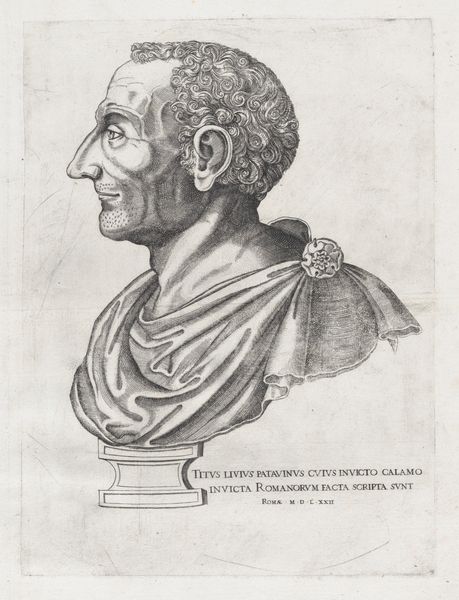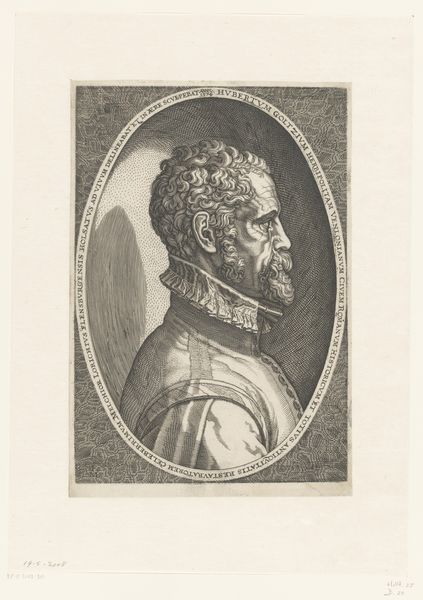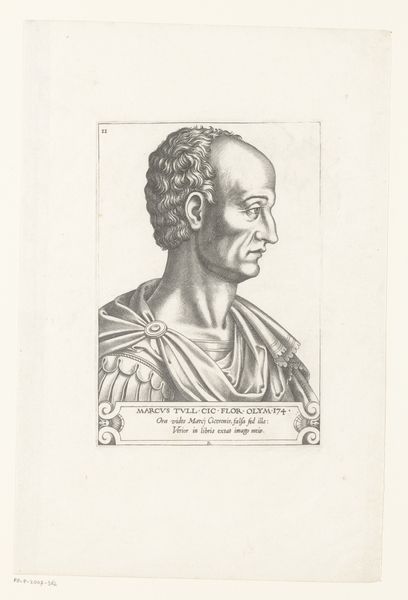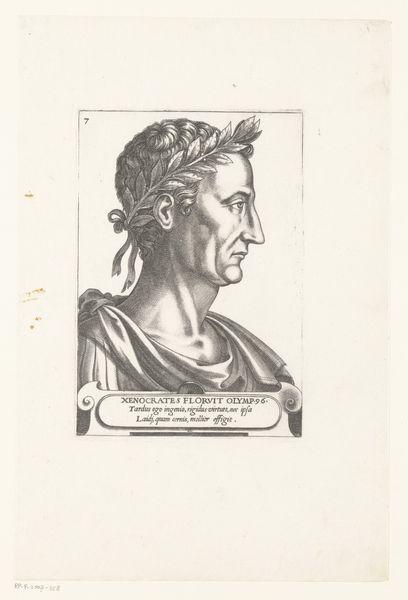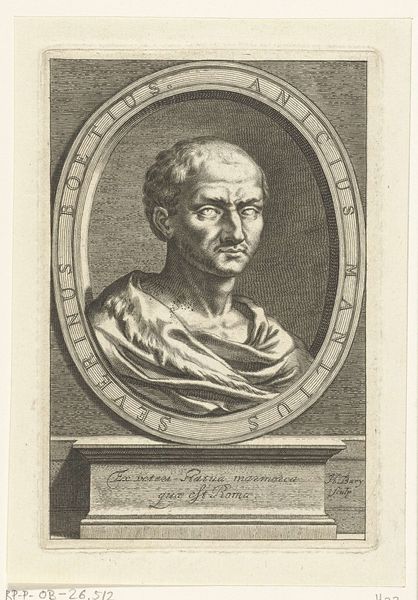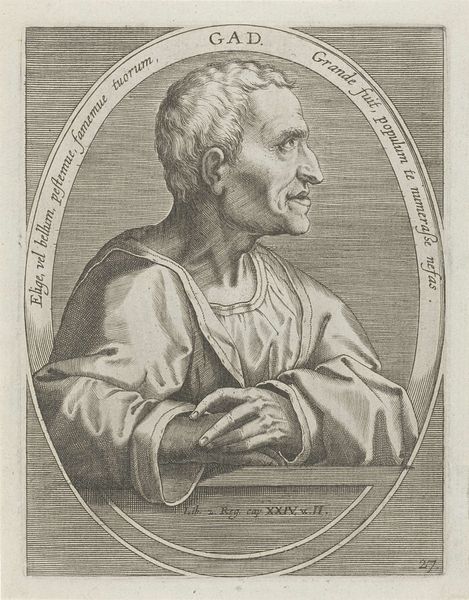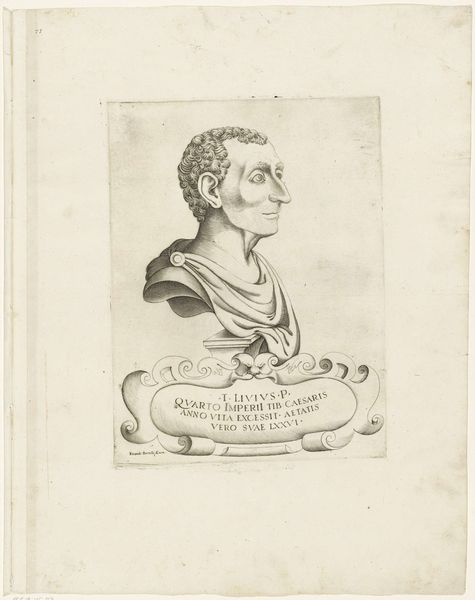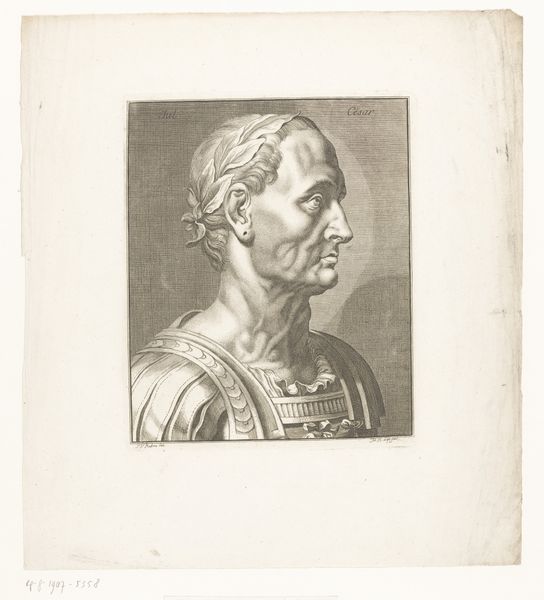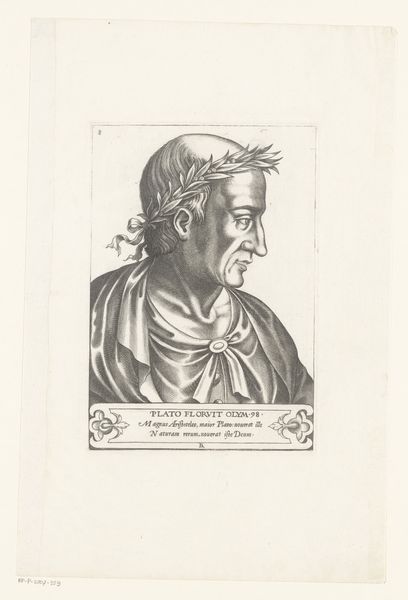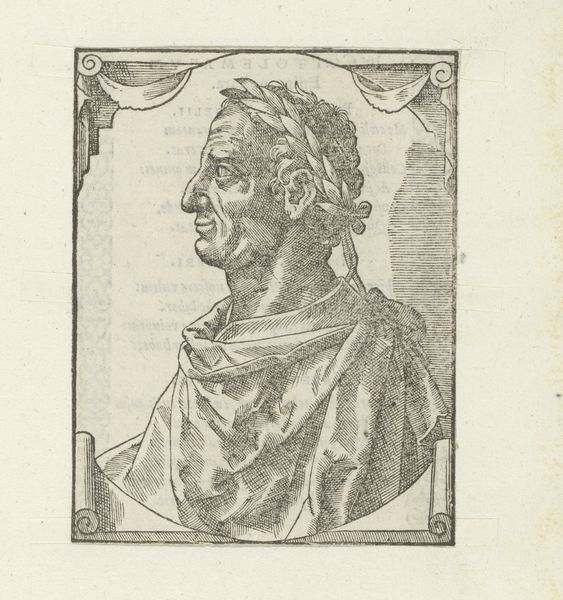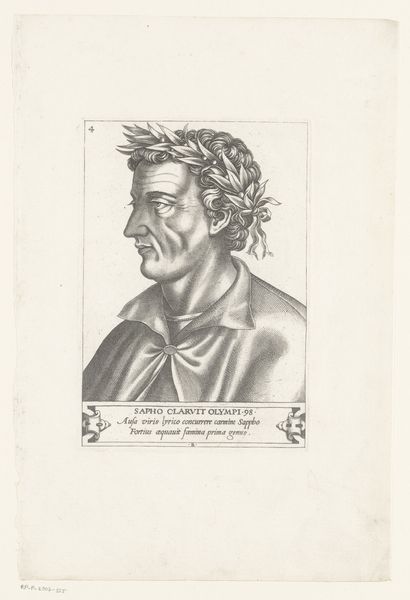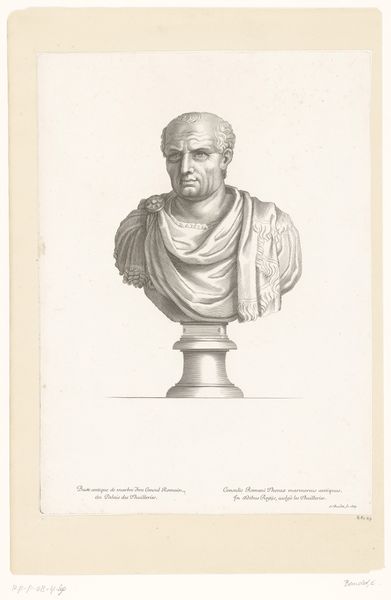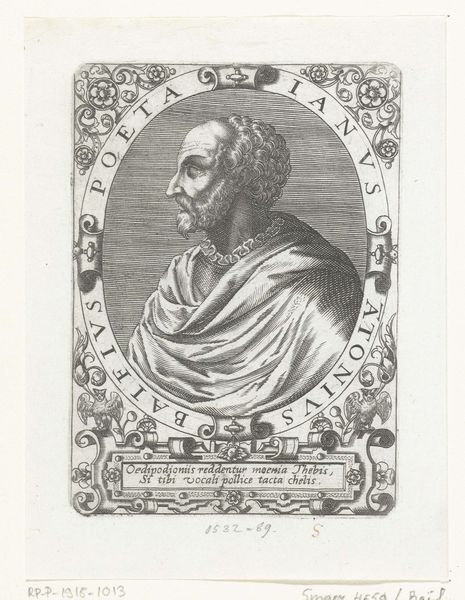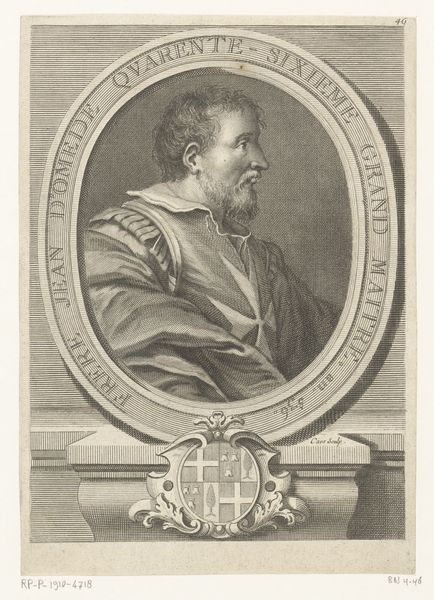
Speculum Romanae Magnificentiae: Bust of Livy 1582
0:00
0:00
drawing, print, engraving
#
portrait
#
drawing
# print
#
11_renaissance
#
ancient-mediterranean
#
history-painting
#
engraving
#
profile
Dimensions: sheet: 14 3/16 x 11 in. (36 x 28 cm) plate: 12 3/8 x 9 7/16 in. (31.5 x 24 cm)
Copyright: Public Domain
Giovanni Ambrogio Brambilla created this engraving of a bust of Livy in Rome in the late 16th century. It’s part of a series called "Speculum Romanae Magnificentiae," or "Mirror of Roman Magnificence." This series reflects a key ambition of the Roman art world at the time: to revive the glory of ancient Rome through art and architecture. The "Speculum" aimed to document Rome’s ancient heritage, showcasing sculptures like this bust of Livy alongside famous buildings and monuments. Engravings like this one served as a visual archive, spreading knowledge of Roman antiquity to a wider audience. They were collected by scholars, artists, and tourists, fueling the Renaissance fascination with classical culture. To understand this image fully, we need to consider its role within this specific cultural and institutional context. By consulting historical records, architectural plans, and other visual sources, we can begin to appreciate how Brambilla's engraving contributed to the construction of Rome as a center of artistic and intellectual revival.
Comments
No comments
Be the first to comment and join the conversation on the ultimate creative platform.
